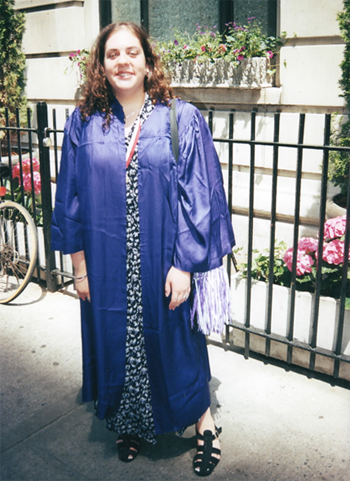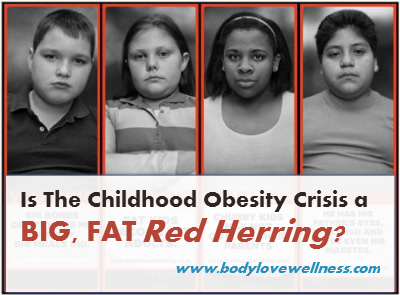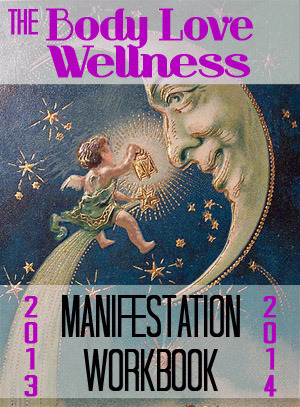Golda Poretsky's Blog, page 4
May 10, 2014
Monica & Me: Fat Girls Of The ’90’s
I always liked Monica Lewinsky.
Back in 1998, I was 20 years old, just a few years younger than she was at the time. Superficially, I looked a little like her — the plus-sized body (though she was probably smaller than me), the round face, the modified “Friends” haircut. People literally would yell out “Hey, Monica!” to me on my way to class at NYU. She lived just a few blocks away from my dorm at the time.
A lot of people were in love with Bill Clinton then (me included). The 1992 election had been particularly exciting. After 12 years of Republicans, two relative cute, young-ish, progressive guys had taken over and they seemed to actually care about the economy and whether people had jobs that they could actually live on.
So when Monica hooked up with Bill, I think a lot of women thought to themselves that they would probably have done the same thing.
Me in 1999 at the NYU graduation.
The ensuing “scandal” felt like a witch hunt. The idea that a president could potentially be impeached for oral sex (or, ahem, lying about oral sex) was ridiculous to most rational people. I hated the idea that tax dollars were going to paying for special prosecutor Ken Starr’s investigation.
All that aside, at the time, you could not turn on the TV without hearing a “Monica” joke, which was, at least it seemed to me, almost always about her weight. The joke was the same every time — why would the president, the leader of the free world, who could probably get almost any woman he wanted, hook up with a “fat girl” (or, perhaps even worse, a fat, Jewish girl)?
As a fellow fat, Jewish girl, I thought the media response to Monica was kind of scary. I had spent my life trying to un-fat myself because of the judgment of others, but to hear, again and again, that this slightly fat 20-something was undesirable, disgusting, and reviled was particularly revealing. It was like the unspoken judgment of millions of people suddenly became spoken, loudly, and the consensus was that being fat, even a little fat, was the grossest thing that you could be.
In the meantime, I found myself thinking about the reality of what happened versus the judgment of others. The fact was that the most powerful man in our country, a man who combined an incredible IQ with a real compassion for people (in other words, really sexy) was undoubtedly attracted to a fat woman. As a 20-year-old, I found that interesting and, truthfully, heartening, even if the public response to what happened depressed me.
I had taken a short break from dieting in 1997, but I started up again in 1998. Looking back, I think that the Clinton-Lewinsky scandal may have contributed to that choice. Nobody wanted to be Monica, nobody wanted to be the butt of the joke.
In 1999, I started law school at NYU Law, and special prosecutor Ken Starr was teaching there. I was really hoping to run into him in the hallway so that I could “accidentally” trip him. No such luck though.
(By the way, if you want some insight into how Clinton and Lewinsky’s shared concerns about their fatness and dieting actually led to their relationship, you must read this wonderful book by Paul Campos.)
Did the Clinton-Lewinsky scandal influence your thoughts on your own fat body? Let’s chat about it in the comments below!
Get great body love tips and more when you subscribe:
Name:
Email:
Golda is a certified holistic health counselor and founder of Body Love Wellness, a program designed for plus-sized women who are fed up with dieting and want support to stop obsessing about food and weight. To learn more about Golda and her work, click here.
Monica & Me: Fat Girls Of The ’90’s originally appeared on Body Love Wellness (http://www.bodylovewellness.com) on May 10, 2014.
Monica & Me: Fat Girls Of The ’90′s
I always liked Monica Lewinsky.
Back in 1998, I was 20 years old, just a few years younger than she was at the time. Superficially, I looked a little like her — the plus-sized body (though she was probably smaller than me), the round face, the modified “Friends” haircut. People literally would yell out “Hey, Monica!” to me on my way to class at NYU. She lived just a few blocks away from my dorm at the time.
A lot of people were in love with Bill Clinton then (me included). The 1992 election had been particularly exciting. After 12 years of Republicans, two relative cute, young-ish, progressive guys had taken over and they seemed to actually care about the economy and whether people had jobs that they could actually live on.
So when Monica hooked up with Bill, I think a lot of women thought to themselves that they would probably have done the same thing.
Me in 1999 at the NYU graduation.
The ensuing “scandal” felt like a witch hunt. The idea that a president could potentially be impeached for oral sex (or, ahem, lying about oral sex) was ridiculous to most rational people. I hated the idea that tax dollars were going to paying for special prosecutor Ken Starr’s investigation.
All that aside, at the time, you could not turn on the TV without hearing a “Monica” joke, which was, at least it seemed to me, almost always about her weight. The joke was the same every time — why would the president, the leader of the free world, who could probably get almost any woman he wanted, hook up with a “fat girl” (or, perhaps even worse, a fat, Jewish girl)?
As a fellow fat, Jewish girl, I thought the media response to Monica was kind of scary. I had spent my life trying to un-fat myself because of the judgment of others, but to hear, again and again, that this slightly fat 20-something was undesirable, disgusting, and reviled was particularly revealing. It was like the unspoken judgment of millions of people suddenly became spoken, loudly, and the consensus was that being fat, even a little fat, was the grossest thing that you could be.
In the meantime, I found myself thinking about the reality of what happened versus the judgment of others. The fact was that the most powerful man in our country, a man who combined an incredible IQ with a real compassion for people (in other words, really sexy) was undoubtedly attracted to a fat woman. As a 20-year-old, I found that interesting and, truthfully, heartening, even if the public response to what happened depressed me.
I had taken a short break from dieting in 1997, but I started up again in 1998. Looking back, I think that the Clinton-Lewinsky scandal may have contributed to that choice. Nobody wanted to be Monica, nobody wanted to be the butt of the joke.
In 1999, I started law school at NYU Law, and special prosecutor Ken Starr was teaching there. I was really hoping to run into him in the hallway so that I could “accidentally” trip him. No such luck though.
(By the way, if you want some insight into how Clinton and Lewinsky’s shared concerns about their fatness and dieting actually led to their relationship, you must read this wonderful book by Paul Campos.)
Did the Clinton-Lewinsky scandal influence your thoughts on your own fat body? Let’s chat about it in the comments below!
Get great body love tips and more when you subscribe:
Name:
Email:
Golda is a certified holistic health counselor and founder of Body Love Wellness, a program designed for plus-sized women who are fed up with dieting and want support to stop obsessing about food and weight. To learn more about Golda and her work, click here.
Monica & Me: Fat Girls Of The ’90′s originally appeared on Body Love Wellness (http://www.bodylovewellness.com) on May 10, 2014.

March 20, 2014
Ragen Chastain & MORE Cabaret on PBS!
So excited to see Ragen Chastain, et. al. talking about her experience on PBS.
Share and like! (And give it a thumbs up on youtube!)
Get great body love tips and more when you subscribe:
Name:
Email:
Golda is a certified holistic health counselor and founder of Body Love Wellness, a program designed for plus-sized women who are fed up with dieting and want support to stop obsessing about food and weight. To learn more about Golda and her work, click here.
Ragen Chastain & MORE Cabaret on PBS! originally appeared on Body Love Wellness (http://www.bodylovewellness.com) on March 20, 2014.

March 19, 2014
The HAES® For The Holidays Ecourse Is Back For Spring!
 Easter and Passover are almost here. Did you ever notice that the holidays can bring up a lot of . . . stuff?
Easter and Passover are almost here. Did you ever notice that the holidays can bring up a lot of . . . stuff?
Being with family can mean being scrutinized about your weight, your food choices, and even bigger life choices.
Whether you come from a family of constant dieters or one where cleaning your plate is the best way to show love, navigating your way through the holiday season can feel more pressured and stressful than anything else.
Wouldn’t it be fabulous to have more fun this holiday? Wouldn’t it be lovely to have the tools you need so that you can have a really joyous holiday?
If so, I think you should check out my new, super-affordable e-course, HAES® For The Holidays! I’ve specifically designed an e-course to give you the body positive, loving support you deserve. All of the content is designed to align with Health At Every Size® (HAES®) practices.
We get started really soon, so don’t delay!
Happy HAES® Holidays!
The HAES® For The Holidays Ecourse Is Back For Spring! originally appeared on Body Love Wellness (http://www.bodylovewellness.com) on March 19, 2014.

March 18, 2014
Check it out! Jill Andrew’s TEDx Talk On Fat Shaming & The Thin Epidemic
I’m so excited that another wonderful fat activist has shared her wisdom via a TEDx talk!
Check out Jill Andrew’s powerful, brilliant, evocative talk. (You may know her from her awesome blog, Fat In The City.)
Make sure to like it on youtube too. You know the trolls will get hold of this eventually, so let’s give it tons of likes!
Check it out! Jill Andrew’s TEDx Talk On Fat Shaming & The Thin Epidemic originally appeared on Body Love Wellness (http://www.bodylovewellness.com) on March 18, 2014.

February 12, 2014
The Powerful Practice Of Dating Yourself

Yum! Capuccino Date. (Image Courtesy Of Flickr)
I’m bringing back one of my favorite posts this week. Read the magic of dating yourself as a way of upping your self care and amplifying your attraction factor. Enjoy!
Recently, I had the pleasure of going to a lovely dinner with my friend (let’s call her Amanda). The subject turned to the topic of dating. She told me how, about a year ago, she had wanted to meet a guy but wasn’t meeting anyone who piqued her interest, so she decided to start dating herself. In essence, she decided to be her own lover. She would take herself out to restaurants that she had been dying to go to, she would buy herself flowers, write herself love letters, make beautiful dinners for herself, and enjoy sensual time with herself. She so enjoyed dating herself that she ended up attracting a really great relationship in a matter of months. She joked that she was in a polyamorous relationship — her primary relationship was with herself and her secondary relationship was with her boyfriend.
What I loved about Amanda’s story was that she kept dating herself even though she now had a boyfriend because the benefits of dating herself were so great.
So what are some of the benefits of dating yourself?
Dating yourself allows you to get in touch with what you really want in relationships. It allows you to connect with how you want to be loved, how you want to be touched, how much space you need, etc.
Dating yourself allows you to see how much you have and how much you are able to fulfill your own desires, without relying on someone else to do it for you. In essence, you realize your completeness.
Dating yourself allows you to assert boundaries in your relationships in an easy and loving way. Sometimes it’s easier to say, “I need to go on a date with myself” than “I need to be left alone”.
Dating yourself allows you to spend time enjoying the sensual pleasure of your body, which is so healing in terms of body acceptance (and so wonderful nonetheless)!
If you are looking for a relationship, dating yourself gives yourself a reminder of how it feels to be dating. And, as you may have found, people often get more attention from potential lovers when they’re already in a relationship. Therefore, dating yourself can actually make you more attractive because you’re already in a relationship.
In the work that I do, I often find that different techniques work for different people when it comes to increasing their sense of self love and well being. If dating yourself sounds like fun to you, I encourage you to do it! In order to support you, answer these questions and start acting on your answers. Your lover is waiting!
What kinds of communication would you like to get from the person you’re dating? (Consider: sexy text messages, love letters, loving voice mails.)
Where would you like to go on dates? (Consider: restaurants, movies, museums, parks, boatrides, at home.)
What kind of gifts would you like to get from a lover? (Consider: flowers, books, clothes, jewelry.)
What kind of sensual experiences would you like to have with a lover? (Experiment with exploring your body. There are some great books on this topic.)
What would you like to wear on these dates? (Consider: dressing up, lingerie, perfume, makeup, hair.)
How do you like to set the mood for myself? (Consider: music, baths, self massage.)
Have fun with this. Do the things that sound pleasurable to you and forget about the things that don’t. And remember, the first rule of the Body Love Club is it’s all research.
Finally, the idea of fulfilling your own desires doesn’t have to be limited to dating yourself. Pick a desire that you feel you need someone else to fulfill, and try to fulfill it yourself, even in a small way. For example, if you’re looking for a new job, perhaps you want to pay yourself for a task that you do, just to get the feeling into your body of being paid for different work.
As always, let me know how it goes in the comments section below!
And, if you want some support with loving your self and your body this February . . . check out my new, super affordable e-course, 30 Days Of Body Love, by clicking here.
Golda is a certified holistic health counselor and founder of Body Love Wellness, a program designed for plus-sized women who are fed up with dieting and want support to stop obsessing about food and weight. To learn more about Golda and her work, click here.
The Powerful Practice Of Dating Yourself originally appeared on Body Love Wellness (http://www.bodylovewellness.com) on February 12, 2014.

February 6, 2014
New E-Course: 30 Days Of Body Love!
 It’s February and love (and a bunch of snow) is in the air.
It’s February and love (and a bunch of snow) is in the air.
If you’re anything like I used to be, you’re probably thrilled that the polar vortex is requiring you to wear tons of layers. You may feel covered up and less insecure in your bulky winter gear.
But it’s not like your body image issues go away in the winter.
You’re probably still finding yourself:
Struggling to get dressed in the morning
Worrying about your weight and what if anything you can do to change it
Thinking of ways to cover up your body and camouflage “problem areas”
Wondering if the new folks you meet will judge you for your body
Asking yourself when your mother/friend/doctor will stop nagging you about your weight
Being the smart person that you are, you can often identify these questions as internalized messages about what your body “should” look like in order to be socially acceptable and worthy.
And while you can often intellectually acknowledge that these messages are wrong, you may still feel ashamed about your own body.
Wouldn’t it be really wonderful to break these negative patterns and really love your body? What else might you do, be, or have? How would you feel at a party, at work, on a date? How would you feel getting dressed in the morning?
What else could you do with all that time and energy that you normally lose to worrying about your body and feeling ashamed of it?
Whether you’ve been practicing body positivity for a while or just want to dip your toe in and see what it’s all about, I think you should check out my new, super-affordable e-course, 30 Days Of Body Love! I’ve specifically designed an e-course to give you the body positive, loving support you deserve. All of the content is designed to align with Health At Every Size® (HAES®) and fat positivity.
We get started next week, so don’t delay!
New E-Course: 30 Days Of Body Love! originally appeared on Body Love Wellness (http://www.bodylovewellness.com) on February 6, 2014.

February 5, 2014
Freaked Out By Rachel Fredrickson’s Biggest Loser Win? Read This.

Rachel Fredrickson at The Biggest Loser finale
When my Biggest Loser exposé got over 5,000 views before 10AM this morning, I knew something was up in BiggestLoserLand.Turns out that last night, The Biggest Loser crowned a new winner, Rachel Fredrickson, who lost nearly 60% of her body weight. She went from 260 pounds to a gaunt 105 pounds to win the show.
As is typical of the rhetoric around fat, weight, and women’s bodies, Rachel was deemed “too thin” and “not healthy” by viewers and the media.
There’s a fine line in the media between too fat, just right, and too thin. If Jennifer Lawrence is too fat and Rachel Frederickson is too thin, then I’m assuming the swing is a mere 15 pounds or so.
But to those who are decrying Rachel’s weight loss as too much, I ask you, what did you think this show is about? Do you think The Biggest Loser is about health? Well-being? It’s a show that promotes weight loss at any cost.
The winner is not the person who eats reasonably, exercises moderately, and makes time for family, friends, and fun.
The winner is the person who loses the largest percentage of body weight. It’s that simple.
Lest you think that I am supporting the producers of The Biggest Loser, I am not. I am asking you, dear reader, to open your eyes to the reality of this show.
Here is what The Biggest Loser is NOT about:
Health.
Here is what The Biggest Loser IS about:
Shaming fat people.
Promoting diet products.
Promoting other merchandise tie-ins.
Manipulating viewers into thinking that their show is “saving lives.”
Ruining the physical and mental health of contestants season after season.
Why The Biggest Loser Should Be Stopped
I could probably write a treatise on why The Biggest Loser should be taken off the air. But I’ll share my top 3 reasons why right here.
The Biggest Loser Is Physically And Emotionally Dangerous For the Contestants. Just from watching The Biggest Loser you can glean some things about the way the contestants are treated. (In this one clip alone from Australia’s Biggest Loser, you can see the emotional and physical duress the contestants are under, and the fact that cannot even open a door to get fresh air.) About two and half years ago, I interviewed Season 3 finalist Kai Hibbard about her experiences on the “ranch.” She talked about how contestants were encouraged and, I would say, brainwashed, into intense dehydration, overexercising (sometimes while injured), and eating disordered behavior.
The Biggest Loser Reinforces The Idea That Thinness, At Any Cost, Is Healthy. Diets don’t work, and that includes extreme diets. You won’t hear about it in the media, because facts don’t sell diets and weight loss drugs. And you also won’t hear about Biggest Loser contestants who gain the weight back, not because it doesn’t happen, but because they sign a huge contract without the benefit of counsel when they sign up for the show, and that contract includes a gag order with million dollar penalties. Even so, a few contestants have admitted to gaining all of the weight back, including Erik Chopin and Ryan C. Benson.
The Biggest Loser Bolsters Fat Hatred And Stigma. More and more evidence is suggesting that the real danger of obesity has nothing to do with fat, and everything to do with the stigma of being fat. For 14 seasons in the US (and multiple seasons in over 20 countries around the world) The Biggest Loser has been reinforcing the stereotype that fat people are lazy and unhealthy and deserve to be berated, forced to exercise in pain and with injuries, and malnourished all for the sake of weight loss and entertainment. Millions of people watch this show every week and internalize this message. The show, in essence, makes “bullying for health” a viable and particularly dangerous concept, especially given the fact that fat kids are the most likely to get bullied.
What You Can Do To Stop Biggest Loser
To make things really easy, you can just click on your favorite tweet below, and it will open in twitter and post to twitter once you approve it. You’re also welcome, of course, to tweet whatever you want. Just be sure to use the #stopbiggestloser hashtag, and it doesn’t hurt to direct your tweets to @NBC and/or @biggestlosernbc.
Click to tweet: “@NBC @biggestlosernbc
Stop profiting from stigma and starvation. #stopbiggestloser”
Click to tweet: “@NBC @biggestlosernbc
Starvation and shaming is not health. #stopbiggestloser”
Click to tweet: “@NBC @biggestlosernbc
Stop starving people
for profit. #stopbiggestloser”
Click to tweet:
“@NBC @biggestlosernbc
Abuse ≠ entertainment. #stopbiggestloser”
Feel free to comment below and let me know what you tweeted!
Click here to read my other articles on The Biggest Loser.
Golda is a certified holistic health counselor and founder of Body Love Wellness, a program designed for plus-sized women who are fed up with dieting and want support to stop obsessing about food and weight. To learn more about Golda and her work, click here.
Freaked Out By Rachel Fredrickson’s Biggest Loser Win? Read This. originally appeared on Body Love Wellness (http://www.bodylovewellness.com) on February 5, 2014.

January 2, 2014
Is The Childhood Obesity Crisis A Big Fat Red Herring?

Image from the Atlanta, GA anti-childhood-obesity campaign
I grew up in Freeport, New York, a suburb of New York City on the south shore of Long Island. For decades, Freeport has been a very diverse community, with mostly lower middle class, working class, and poor people.
Rather than pay the dollar or so to the cafeteria lunch lady, many of my elementary school classmates flashed cards that showed that they were eligible for reduced or free lunch.
Sometimes I would overhear the “free lunch” kids talking about how lunch was their first meal that day. Even though I was often on some form of a diet, my stomach turned at the idea of skipping breakfast, especially when I was seven or eight years old.
Now, someone who has no knowledge of metabolism (not you, dear reader) might think that all the kids getting free lunch back at my elementary school cafeteria were skinny.
Not so at all.
Some might have been classified as “obese” or at least “overweight” by today’s standards.
And maybe this doesn’t quite surprise you.
After all, all you need to do is turn on the TV, look at a newspaper or magazine, or stare briefly at the Internet, and you will hear about the “childhood obesity crisis.”
Kids are, allegedly, getting fatter.
According to the CDC, “Childhood obesity has more than doubled in children and tripled in adolescents in the past 30 years.” More than one-third of children and adolescents are overweight and obese, they say.
Aside from the fact that every attempt to make fat kids thin has failed, even the NIH says that focusing on weight is bad for kids because it increases stigma and shaming.
Not a single study shows that weight loss works for more than 5% of people, and, by the way, despite fears about obesity, U.S. life expectancy continues to rise.
So why are people continuing to fixate on childhood obesity?
I think maybe because it’s obscuring a much bigger, scarier issue.
Let’s Take a Look at Childhood Poverty
Just so we’re on the same page, the reasons for undernourished kids – like the ones in my school cafeteria line of yore – being fatter include: (a) genetics, (b) slowed metabolism and increased fat storage due to lack of calories and nutrition, and/or (c) eating more calorie-dense, nutrient deficient, cheaper food.
There’s somewhat of a relationship between the “childhood obesity crisis” and childhood poverty, and I think we’re focusing on the wrong supposed problem.
While childhood obesity has apparently declined slightly in recent years, one thing that hasn’t declined is childhood poverty.
Among developed nations, the U.S. ranks second to last in childhood poverty.
Nearly a quarter (22.6%) of American children live below the poverty line, with a 4.5% increase in childhood poverty since 2007.
Break these numbers down further and the picture is even bleaker for African-American and Latino children, with more than a third of those children living below the poverty line.
And, of course, this doesn’t include children whose families live at or near the poverty line who are also struggling.
Our government’s way of handling this actual crisis of childhood poverty has been to cut food stamps and other resources for poor children.
Childhood poverty has serious and clear negative effects.
Poor children risk and experience homelessness, lack of food, lack of adequate healthcare, lack of adequate childcare, unsafe neighborhoods and more.
They live with the constant stress and fear that their basic needs won’t be met.
They have more difficulty concentrating in school and are more at risk for dropping out early, which then affects any opportunities for advancement as they get older.
So childhood poverty is increasing, while childhood obesity has leveled out and, most importantly, is really a non-issue (good food and safe, fun exercise should be available and important for all kids, not just fat ones).
It’s Time to Reassess Our Societal Goals and Values
First Lady Michelle Obama has stated that one of the goals of her “Let’s Move” campaign is to “eliminate this problem of childhood obesity in a generation.”
Imagine if she had said that one of her goals was to “eliminate childhood poverty and malnutrition in a generation.” Imagine if she made this much more pressing issue a priority.
Obesity is a “sexy” issue only because it’s easy.
It’s easy to vilify and stereotype people, including children, based upon how they look. It’s easy to stigmatize a group, say they’re bad, they have bad habits, they need to be changed, they need to look different.
Poverty is a much scarier problem and a much bigger, more endemic one.
Children are living in poverty because of over thirty years of policies that have increased income disparity to such a degree that the middle class is nearly gone.
Instead, we have a wealthy 1% and an increasingly poor 99%, with more and more people (including working people) relying on government benefits to survive.
What we end up with, as a result, are increasing numbers of families who are barely surviving, with children who are barely surviving.
The absolute least of our issues as a society is “obesity.”
***
Obesity is just a red herring. Vilifying obesity has become a way to ignore the reality of the suffering of millions of people.
When liberals talk about fat as a problem of individuals not taking care of themselves and not understanding nutrition, they have essentially co-opted the “personal responsibility” lingo of conservatives. They have bought and eaten the red herring (albeit wild-caught and delicately grilled).
It’s time to refocus on the real problems and real suffering of our nation’s children, whether they happen to be fat or not.
Get great body love tips and more when you subscribe:
Name:
Email:
Golda is a certified holistic health counselor and founder of Body Love Wellness, a program designed for plus-sized women who are fed up with dieting and want support to stop obsessing about food and weight. To learn more about Golda and her work, click here.
{PODCAST WILL BE UP SOON!– STAY TUNED!}
Is The Childhood Obesity Crisis A Big Fat Red Herring? originally appeared on Body Love Wellness (http://www.bodylovewellness.com) on January 2, 2014.

December 29, 2013
The Body Love Wellness 2013-2014 Transition & Manifestation Book Is Now Available!
 It’s become a yearly tradition here at Body Love Wellness, and I’m so excited to share it with you again!
It’s become a yearly tradition here at Body Love Wellness, and I’m so excited to share it with you again!
The older I get, the more I feel like time is just flying by. Sometimes I feel like there are so many good moments to enjoy and so many difficult ones to learn from and grow from, and yet, I can’t seem to slow down enough to really take stock.
That’s why, over the last few years, I’ve developed a very special New Year’s ritual, that grounds me in acceptance of what is and gives me clarity on what I want going forward.
Because I’m so committed to you getting the benefits of this ritual too, I developed as easy-to-follow workbook so that you can do the ritual too. (This is an updated version of the one I shared last year, so feel free to get it again!) This workbook will only be available through midnight Eastern on Sunday, January 5th, so get yours now!
Here are the basics:
First, I make a gratitude list of all the things I’m grateful for that happened in 2012. It’s my way of digesting the year and remembering the good (and tough situations) that have come my way.
Next, I make desire lists of all the things I want in the coming year. I break this down into specific categories that I share with you in the workbook. This is my way of getting real clarity on my true desires, so that I can enjoy the process of manifesting them.
Then, last but not least, I list my intentions for 2014. These are the things that I’m committed to doing, changing and experiencing in 2014. These are different than the desire lists, and I explain that in the workbook.
How To Get The Book
Rather than setting a price for the manifestation book, I just ask you to pay what you wish. You can pay as little as a dollar or more. Thanks in advance for your purchase!

After making your payment, you will be taken directly to a page that contains a downloadable PDF. Super easy!
The Body Love Wellness 2013-2014 Transition & Manifestation Book Is Now Available! originally appeared on Body Love Wellness (http://www.bodylovewellness.com) on December 29, 2013.




